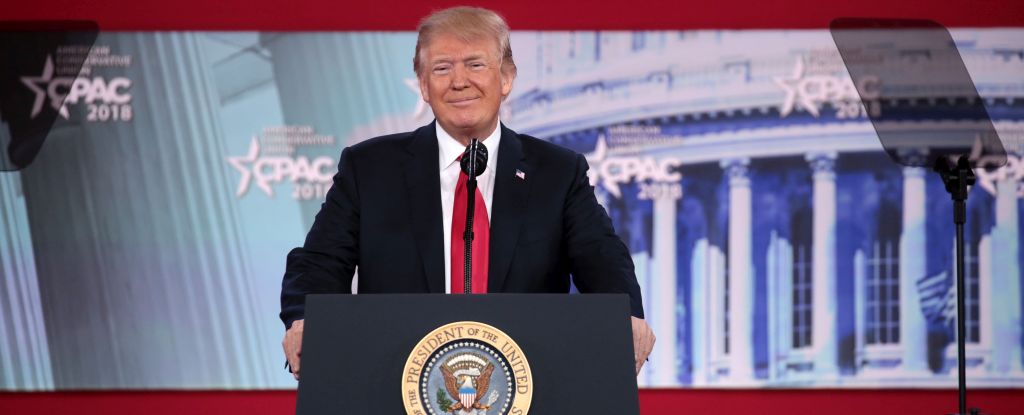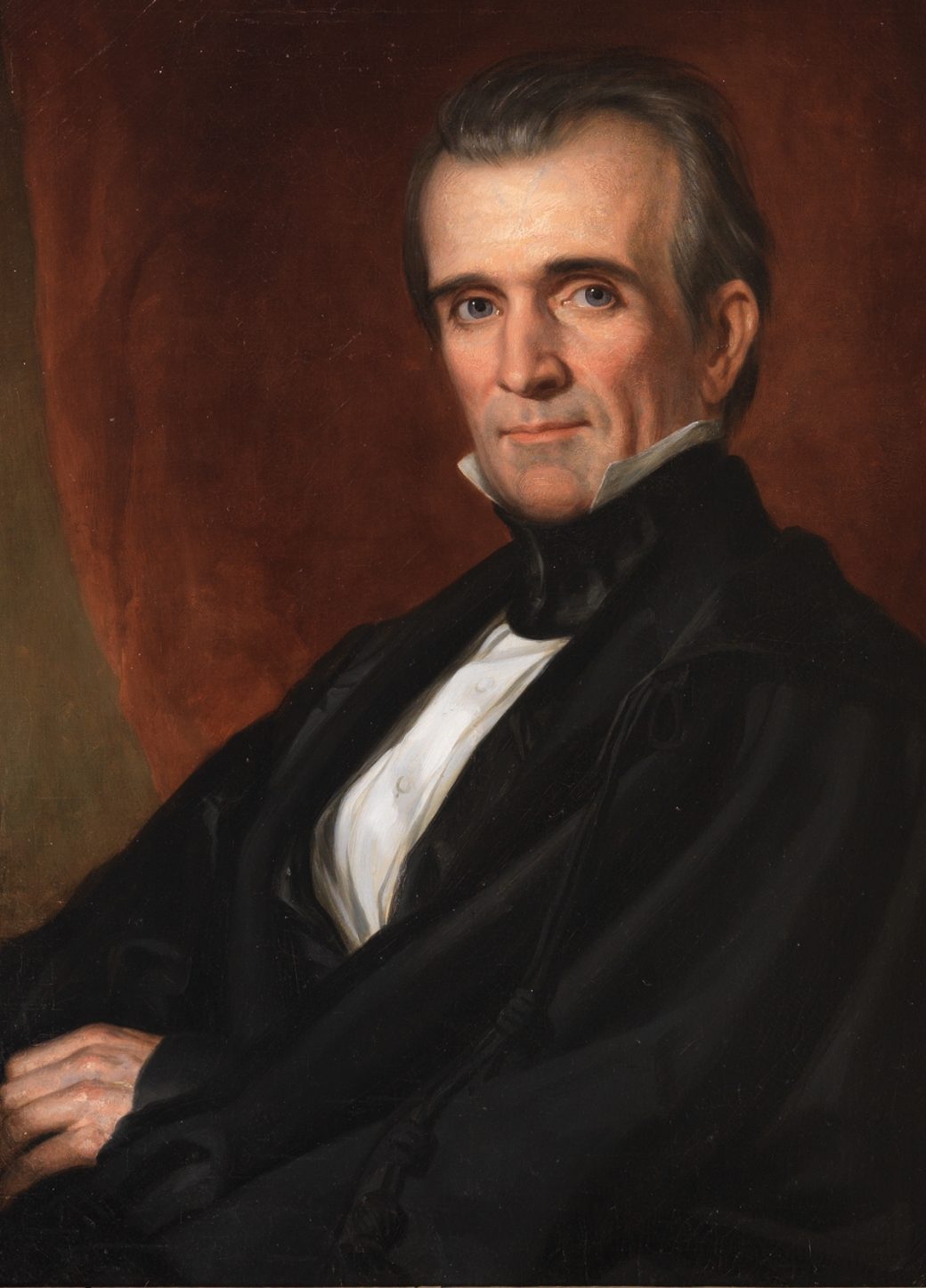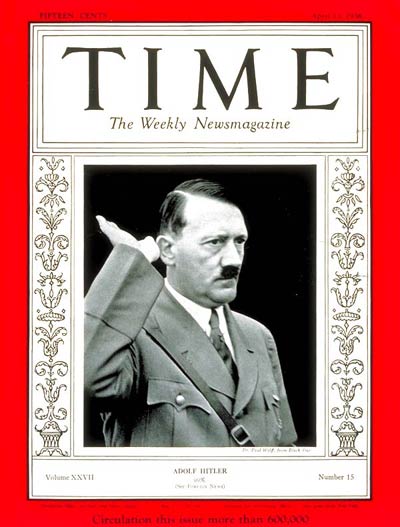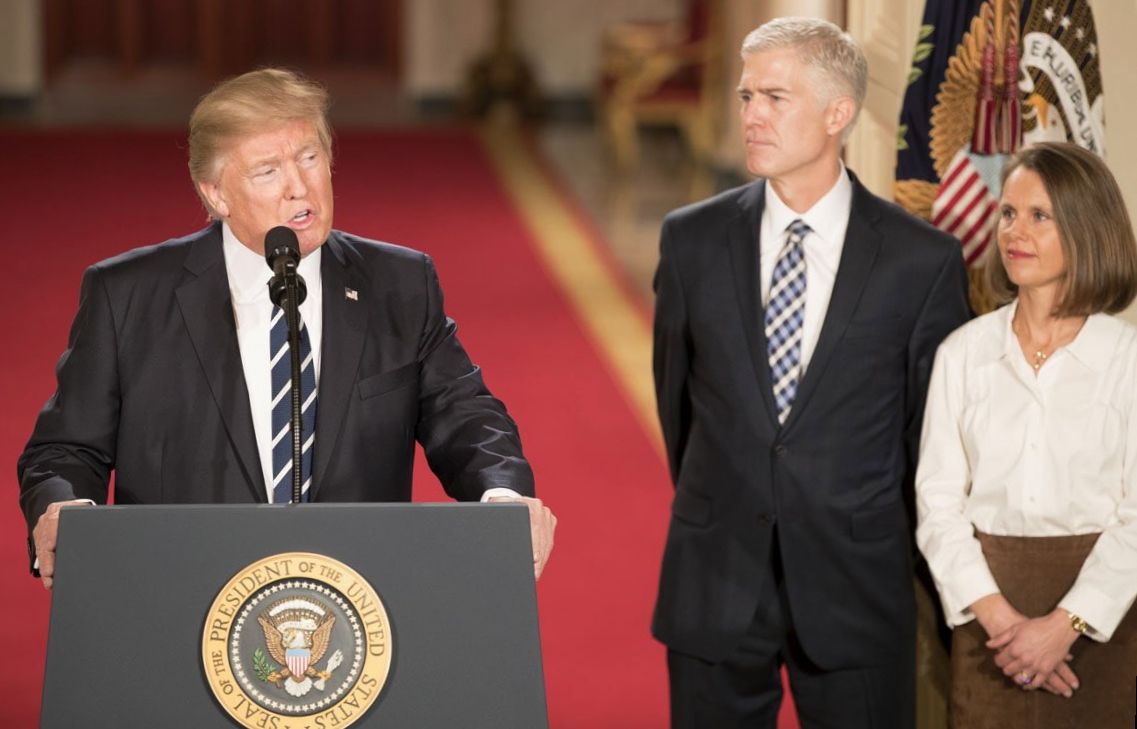Trump is the most transformative one-term President in 175 years, but historians will not be kind.
-
February/March 2021
Volume66Issue2

If Donald J. Trump — not a contemplative thinker, not a devoted reader, no friend of scholars — were to consider the class of humankind who would be the least favorable evaluators of his personal conduct and political career, he might very well conjure up a group who respect precedent, revere introspection, salute consistency of thought, worship the truth, and think deeply.
It is his bad luck that that is the very definition of the academic historians who will write the biographies and accounts of his presidency and his times.
These academic historians very likely will consider him vulgar, impetuous, and — fortified by the example of January 6, 2021, when he incited a mob to riot at the Capitol — dangerous to American values, democratic institutions, and the rule of law. And though it is impossible to know the environment in which future history will be written, it is unlikely that in decades to come the 45th president will win high regard, or merit even a low-passing grade, among the group most predisposed in the entire universe to find his behavior and record repellent.

That does not mean that they will find him irrelevant or, an important factor at least for popular historians, uninteresting. Doris Kearns Goodwin once told me that she wouldn’t want to spend five years on a biography of James Buchanan because she wouldn’t want to live with him for that amount of time.
But Donald Trump? With real estate businesses, casinos, golf resorts, an airline, a “university,” a retail collection of silk ties, and a line of beef steaks — along with a term in the White House and years of examining whether his predecessor, Barack Obama, were born in Kenya — he may be an irresistible, though formidable, feast for the historians of the future. Don’t expect a short book.
These historians will, to be sure, find him wanting, in two elements that can be traced to the president who remains, nearly a century later, as the chief executive against whom all his successors, and many of his predecessors, are measured. For it was Franklin Delano Roosevelt who argued that the presidency was “pre-eminently a place of moral leadership.”
In that regard Mr. Trump fell short by any reasonable measure. And it was the 32nd president himself who in his landmark 1933 Inaugural Address said that he was speaking in what he called “preeminently a time to speak the truth, the whole truth, frankly and boldly.” Though one contemporary critic described FDR as “blathering platitudes like a parson on vacation,” in the matter of speaking truth in power, Mr. Trump — who likely will be remembered as Pinocchio in the presidency — can expect a failing mark by the evaluators of the future.
Donald Trump was a truly consequential President
But Donald Trump's failures — considerable, irredeemable, and indelible in history, perhaps more so than those of any of his predecessors, including James Buchanan — does not mean that Mr. Trump will be forgotten in history, like some of the late 19th century American presidents who remain a blur even to college history majors and whose peccadilloes have faded like the old newspapers that once screamed their accounts.

For it is incontrovertible that Mr. Trump, the only chief executive to be impeached twice, was not an inconsequential president — and that his image, with pompadour hair that varied between Halloween orange and battleship gray and with neckties that dipped low even as his approval ratings dipped even lower, will not meld into the harmless background of history.
The danger in arguing that the 45th president was a consequential president is the same peril that TIME magazine faced when it named Adolph Hitler its Man of the Year in 1938 and Josef Stalin the Man of the Year in 1939 and again in 1942. The editors of the magazine, perhaps the most influential periodical of the era, were not endorsing Hitler or Stalin. (Nor, for that matter, was TIME endorsing Franklin Roosevelt, the Man of the Year in 1932 and 1934. Henry Luce, the magazine’s publisher, said after the death of the 32nd president that it was “my duty to go on hating him.”) The magazine simply was stating that these leaders would leave large footsteps in the sands of history.
So, too, will Donald J. Trump.
It will take years — and many future presidencies, not simply the presidency of Joseph R. Biden Jr., which in its heady early days of “hope and history” seems designed to prove that the Delawarean is not another version of his predecessor — to know whether Mr. Trump was a presidential aberration or a presidential precursor.
We cannot know for certain, for example, whether future presidents will trample on historical precedent, run roughshod on established etiquette, insult political rivals, demean the media, and undermine the very national and international institutions that were created by a line of American presidents.
We can suspect, however, that future presidents will, like Mr. Trump, use the new forms of media of their age to communicate to, and to manipulate, the public. And we can be sure that the low bar that Mr. Trump created in all these respects will give his successors room to defy 20th century norms in the assurance that their conduct is less jarring or odious than was that of Mr. Trump.But we can also be sure that fair-minded historians of the future will recognize, perhaps grudgingly, that Mr. Trump — though, in the characterization of Peter Wehner, a veteran of the Ronald Reagan, George H.W. Bush and George W. Bush administrations, “psychologically damaged and morally corrupt” — was, if nothing else, truly consequential.
Here are the elements of an argument that I have set out before in a newspaper column and that seems more persuasive now that he has retreated, in disgrace but also in defiance, to his Mar-a-Lago aerie:
Trump’s achievements
He changed America’s approach to trade. He transformed the nation’s relationship with China. He altered the country’s role in international institutions. He remolded the nation’s alliances. He reshaped American views about immigration. He modified decades-old customs of politics. He weaponized social media.
But there is more. He recast ancient notions of how leaders behave, speak and relate to one another. He spawned a debate about whether he endangered democratic values, undermined the Constitution and stirred racial tensions. He set in motion a vigorous, and ultimately healthy, debate in the nation’s newsrooms about the assumptions that undergirded journalism and the procedures and language the journalists employed.
But perhaps most significant and most enduring of all: He used the bully pulpit of the executive branch to foment a violent attack on the legislative branch.
And yet Mr. Trump nonetheless remade two of the three branches of the American government.
As a result, Mr. Trump may be pilloried by contemporary scholars and their successors even as he is remembered in history as perhaps the most consequential — not the best, but the perhaps the most significant — president in three-quarters of a century and perhaps the most consequential one-term president in nearly 175 years.
Not since Franklin Roosevelt has an American president so changed the institution of the presidency, even if those changes turn out not to be long-lasting — and Mr. Trump served only a third of the time FDR spent in the White House. Not since James K. Polk has a one-term American president done so much to change the profile of the country — though Mr. Trump did it without shepherding even a fraction of the substantial legislation through Congress from 2017 to 2021 that Mr. Polk did between 1845 and 1849.
Mr. Trump was a fierce tornado run amuck, rampaging through American politics, diplomatic relations, global institutions and volumes of American etiquette from Benjamin Franklin to Emily Post to Miss Manners. He repealed George H.W. Bush’s approach of “the outstretched hand” and though he rescinded the FDR dictum about the presidency and moral leadership, he may have accomplished a part of the Roosevelt vision of the office.
Indeed, the next sentence in Governor Roosevelt’s 1932 “moral leadership” interview in The New York Times before he defeated Herbert Hoover is less often quoted but is equally important. He said significant presidents “were leaders of thought at times when certain historic ideas in the life of the nation had to be clarified.”
Historians for years will wrestle over whether Mr. Trump permanently clarified or merely temporarily muddled historic ideas. They will evaluate whether Mr. Trump recast long-established principles in the presidency for all time. They will argue over whether he was a plutocrat, populist — or poseur. Or perhaps a toxic mix of all three.
This debate, of course, is not only for the future. It is occurring now.
Either way, his size-12 footprints on the beige and navy-blue carpeting with floral medallions installed in Mr. Trump’s first months in the West Wing will not soon fade.
That is a conviction his supporters embrace with fervor. It is also a view his opponents share with alarm.
“He’s been transformative if for no other reason than he radicalized a very sizable percentage of the electorate to reject the very fundamental tenets of democracy and the rule of law,” said Jon D. Michaels, a UCLA School of Law expert on presidential power. “He’s helped normalize a politics of hate, violence, and corruption. And he’s helped debase and delegitimize the admittedly small number of things we’ve (for better or worse) elevated above the partisan fray – science, public health, national security, prosecutorial decisions and judicial determinations.”
Most impact on two branches of the American government since FDR
No president since FDR has had remotely the impact on two branches of the American government that Mr. Trump has had.
The changes he wrought in the presidency are complemented with the changes he wrought in the bureaucracy, the result being an overhaul of the executive branch that will take Mr. Biden and others years to undo, if at all. How much of that endures is one of the principal political mysteries of the age.
Mr. Biden at this very hour is working to assure that much of it does not — but that will take more than one term and may be short-circuited if he is succeeded by a Republican of the Trump strain, some of whom already are maneuvering for advantage in the GOP and may soon be sighted in Des Moines and Concord.

Trump’s changes in the judicial branch are transformative
But there is no question that the changes Mr. Trump has wrought in the judicial branch are transformative. In installing three Supreme Court justices in one term, he set the high court on a new conservative path — one of the few authentic legacies he cited in his bizarre valedictory remarks on the tarmac of Joint Base Andrews in the last hours of his presidency.
In the last century, Warren Harding, Harry Truman, Richard M. Nixon and Reagan appointed four justices, but they did not alter the executive branch nearly as fundamentally as Mr. Trump. The president’s 53 circuit court appointees in four years approaches the number Barack Obama (55), George W. Bush (62), and Bill Clinton (66) had in eight years.
Mr. Trump’s impact on the judiciary is all the more astonishing when his meager legislative record is compared with that of his one-term antecedent, Mr. Polk, who set out to accomplish four goals and achieved them: settling the Oregon boundary question, cutting tariffs, creating an independent treasury system as an alternative to a national bank, and acquiring California and New Mexico.
Earlier one-term presidents left behind party upheaval (William Howard Taft, Gerald R. Ford, Jimmy Carter) or economic upheaval (Mr. Hoover, the elder Mr. Bush). Mr. Trump departed with a strong stock market but high unemployment—and a virus still raging.
Some Trump initiatives may endure – China, the Mideast, ending foreign wars, and others
But at least some of the Trump initiatives will endure.
Despite promising a dramatic contrast with Mr. Trump, President Biden likely will continue some of his policies, maintaining an aggressive posture toward China, insisting America’s NATO allies increase their defense spending, expressing skepticism about trade agreements, and building on brightening prospects in the Middle East.
Indeed, a transition memo a left-leaning assembly of progressive groups and church activists sent to the Biden team quotes these July 2019 remarks by the new president himself: “It’s past time to end the forever wars, which have cost us untold blood and treasure. Staying entrenched in unwinnable conflicts drains our capacity to lead on other issues” — words that could have come out of the mouth of Mr. Trump, who in his last weeks announced the withdrawal of most American forces from Somalia, where 700 troops have been fighting Islamist militants.
Disrupter without legitimacy just pulls apart, but Trump was consequential
The Yale presidential scholar Stephen Skowronek has argued that loner presidents such as Jimmy Carter and John Quincy Adams, both one-term presidents, failed to reorder the country permanently. “A great disrupter who does not set a new standard of legitimacy,” he said in a 2017 essay in The Washington Post, “will just pull things apart.”
That could be the Trump verdict, too. The question is just how much Mr. Trump pulled things apart.
The debate about Mr. Trump’s historical legacy already is underway. The debate over whether Thomas Jefferson was an authentic democrat or an authentic hypocrite has been simmering for decades. The debate over Mr. Trump’s place in history will last at least as long.
That debate will be consequential, in part because — whether you cheered him or deplored him — Mr. Trump himself was consequential.

